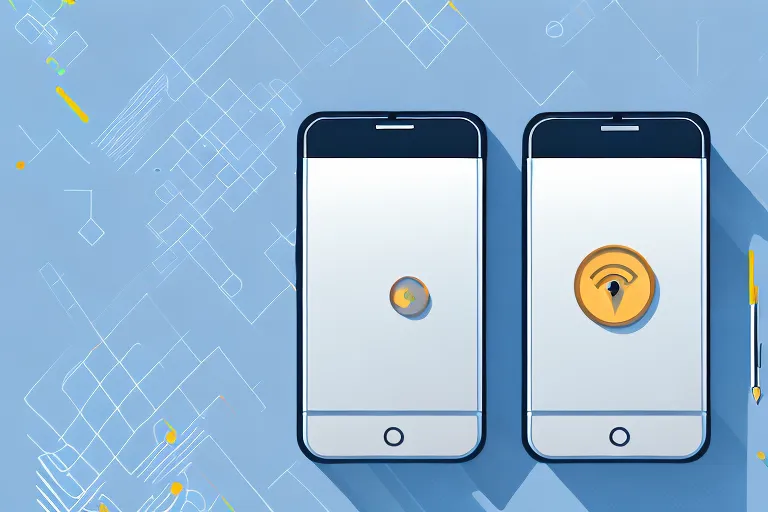If you're someone who uses messaging apps frequently, you must have come across RCS or Rich Communication Service message. Despite being around for quite some time, RCS remains a mystery to many users. One of the questions that often come to mind is – Does RCS API use cellular data? Let's dive deeper into RCS and understand its features before we answer this question.
Understanding RCS and its features
RCS or Rich Communication Services is a successor to SMS or Short Message Service. It leverages IP networks and data connectivity to offer more advanced messaging features than traditional SMS. RCS offers features like read receipts, typing indicators, high-resolution media sharing, and end-to-end encryption with rich media messaging. Furthermore, RCS features are not limited to the messaging app and carry over to phone and device capabilities.
What is RCS?
RCS is a messaging protocol that enables advanced communication features using an internet connection. It uses the IP network and data connectivity instead of traditional SMS or MMS protocols. RCS messaging allows end-to-end encryption, group chats, and multimedia sharing. Additionally, RCS features can be integrated with device capabilities, such as chatbots and digital assistants.With RCS messaging, users can send messages over Wi-Fi or mobile data, which means they can send messages from anywhere in the world without worrying about additional charges. RCS messaging also provides a more reliable messaging experience, as it uses a more stable internet connection than traditional SMS or MMS.
Key features of RCS messaging
RCS messaging provides features such as real-time typing indicators, read receipts, end-to-end encryption, and the capability to send high-resolution multimedia messages. Furthermore, it enables users to create group chats, make video calls, and share live locations to other participants in the chat. Additionally, RCS messaging has various customization options that allow users to personalize their experience.One of the most significant advantages of RCS messaging is its ability to provide a seamless messaging experience across devices. Users can access their messages from any device, including their phone, tablet, or laptop, without any additional setup or configuration.
How RCS compares to traditional SMS and MMS
Unlike traditional SMS and MMS, RCS messaging provides a richer experience to users. Features such as group chat, higher resolution multimedia sharing, and end-to-end encryption are not available with SMS or MMS. Furthermore, RCS messaging uses an internet connection and is not restricted to the carrier's network, allowing for a higher data limit and higher quality messaging experience overall.Another significant advantage of RCS messaging is its ability to provide a more personalized messaging experience. Users can customize their messaging experience with features like themes, stickers, and emojis, making their conversations more engaging and fun.In conclusion, RCS messaging is a game-changer for messaging services, offering users a more advanced and personalized messaging experience. With its rich features and seamless integration with device capabilities, rich messaging is poised to become the future of messaging services.
How RCS uses data
Now that we know about RCS's capabilities, let's dive deeper into how RCS uses data and its impact on users. RCS messaging is a modern and advanced messaging system that offers a more seamless experience for users.
RCS and cellular data usage
Yes, RCS uses cellular data to send and receive messages. The use of data ensures a more seamless messaging experience with features like high-resolution image and video sharing. However, the data used by RCS messaging is minimal compared to other apps such as streaming and social media apps. This means that RCS messaging is not likely to consume a significant amount of data, even for users with limited data plans.Moreover, RCS messaging uses a new protocol called "Universal Profile," which is designed to optimize data usage and minimize the impact on users' cellular data plans. This protocol ensures that RCS messages are more efficient and use less data than traditional SMS and MMS messages.
RCS over Wi-Fi
RCS messaging can also use Wi-Fi to send and receive messages, which is especially useful when you have a poor cellular signal. Using Wi-Fi can lessen the impact of data usage and even be more cost-effective for users with limited cellular data plans. This means that users can enjoy the benefits of RCS messaging without worrying about exceeding their data limits or incurring additional charges.
Data consumption of RCS messages
Data consumption for RCS business messaging varies depending on the size and type of message. However, in general, RCS messages use a minimal amount of data compared to other apps. For example, a standard text message using SMS takes around 0.01KB, while an MMS message can use up to 300KB of data. In contrast, Rich text messaging service take up about 60KB of data, including attachments such as images, documents, and videos.It is worth noting that RCS messaging allows users to send and receive high-quality images and videos without compromising the quality. This means that users can share their favorite moments with friends and family without worrying about the loss of quality or resolution. RCS messaging also supports file sharing, which means that users can send and receive documents, music files, and other types of files without leaving the messaging app.In conclusion, RCS messaging is a modern and advanced messaging system that uses data to offer a seamless and efficient messaging experience. The use of data is minimal compared to other apps, and RCS messaging is designed to optimize data usage and minimize the impact on users' cellular data plans. With RCS messaging, users can enjoy high-quality images and videos, file sharing, and many other features without worrying about exceeding their data limits or incurring additional charges.
Comparing RCS to other messaging apps
RCS messaging offers a variety of features, but how does it compare to other messaging apps? Let's take a closer look.
RCS vs. WhatsApp
WhatsApp is a popular messaging app that uses the internet instead of carrier protocols to send and receive messages. Both WhatsApp and RCS offer end-to-end encryption, video calls, and group chats, but WhatsApp has a broader range of features like voice calls, status updates, and GIFs. Furthermore, WhatsApp has a higher user share and hence supports cross-platform messaging.WhatsApp is also known for its simplicity and ease of use. It has a straightforward interface that allows users to quickly send messages, make calls, and share media. Additionally, WhatsApp has a vast user base, making it a great option for staying connected with friends and family around the world.
RCS vs. iMessage
iMessage is an inbuilt messaging app for iOS devices that allows messaging between Apple devices. It offers features such as end-to-end encryption, video, and audio calls. iMessage also integrates with Apple's ecosystem, supporting continuity and seamless communication between Apple devices. However, iMessage is restricted to Apple devices and hence not available on Android or other operating systems.Despite its limitations, iMessage is a popular messaging app among Apple users. It offers a range of features such as stickers, Animojis, and Memojis, which add a fun and personalized touch to conversations. Additionally, iMessage has a clean and user-friendly interface, making it easy to use and navigate.
RCS vs. Facebook Messenger
Facebook Messenger is a messaging app that requires a Facebook account to use. It offers various features such as voice and video calls, group chats, and even games. Furthermore, Facebook Messenger is available on both Android and iOS platforms, making it a cross-platform messaging app. However, Facebook Messenger lacks full end-to-end encryption that RCS messaging offers.Despite its lack of encryption, Facebook Messenger is a popular messaging app that offers a range of features. It has a vast user base, making it easy to connect with friends and family on the platform. Additionally, Facebook Messenger has a range of fun and interactive features such as filters, stickers, and games, which add a playful element to conversations.
Recent Developments: Apple's announcement of RCS support on their iMessage App
With Apple's latest announcement, iMessage will support RCS messaging in the future, bringing Android and iOS users even closer to universal messaging. This will allow iPhone and iPad users to join RCS group chats and send messages with all the enhanced features like read receipts, typing indicators, and high-res images. This is a significant development as previously Apple only supported standard messages, which lacked the advanced features RCS offers.This development is a step towards a more connected world, where users can communicate seamlessly across different platforms and devices. It will make it easier for people to stay connected with friends and family, regardless of the device they are using.
RCS adoption and availability
While RCS offers advanced features, it's still not available on all devices and operating systems. Let's take a look at the current state of RCS adoption.
Mobile carriers supporting RCS
Major carriers in the US, UK, and Europe have adopted RCS messaging service, including AT&T, Verizon, T-Mobile, Orange, Vodafone, and Deutsche Telekom. Other carriers globally are working to adopt RCS as well.
Compatible devices and operating systems
While adoption varies, RCS is available on most modern Android devices running Android 5.0 Lollipop or later versions. However, it's not available on iOS devices except for the iMessage RCS support announcement. Nevertheless, some third-party messaging apps such as Google Messages support RCS on iOS.
Future of RCS messaging
Rich messaging service has come a long way since its inception and has a bright future ahead. With the new developments in cross-platform messaging, it's no longer confined to Android devices, making it more accessible to millions of people worldwide. Furthermore, RCS messaging has immense potential in the business world, with various companies adopting the protocol for secure communication. With the feature of conversational ad, Businesses can esily track their conversations. With carriers and device manufacturers working towards full RCS adoption, the future of messaging seems bright.
Final Verdict - Does RCS use cellular data?
Yes, RCS uses cellular data to send and receive messages, but the data usage is minimal compared to other apps. Additionally, RCS messaging offers a plethora of features that traditional SMS or MMS lacks, making it a more sophisticated messaging protocol. RCS messaging is a valuable addition to the messaging world, and its future looks promising.

